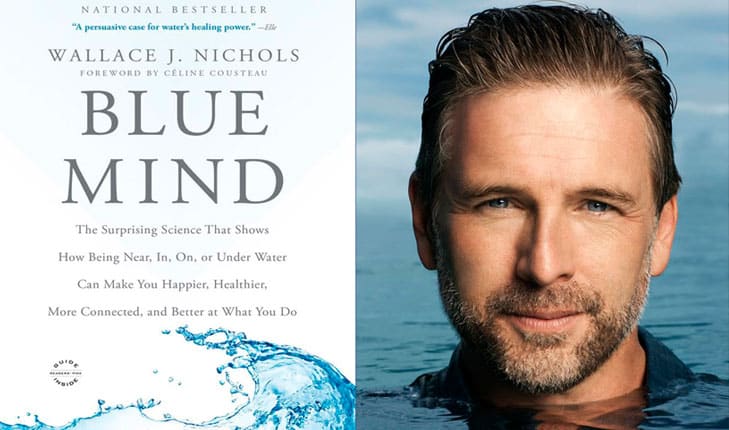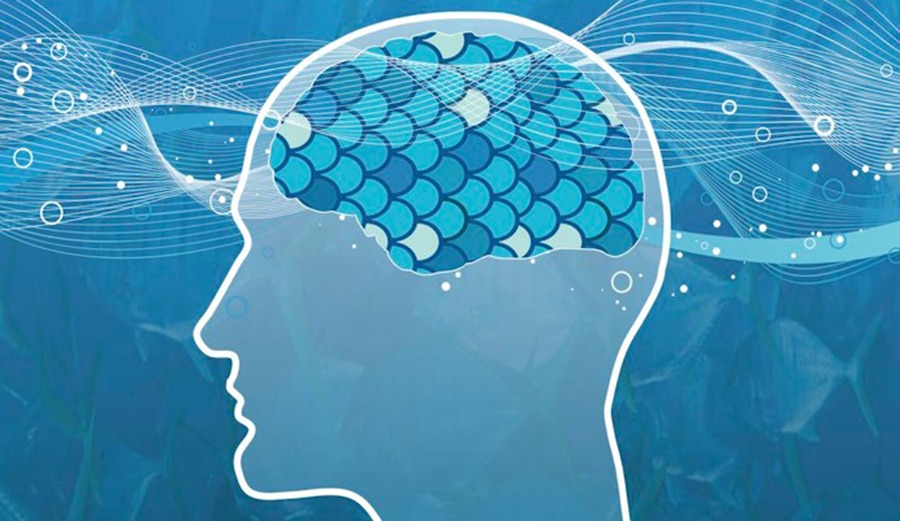What is Blue Mind?
Blue Mind is the term to describe water-associated peace
A mildly meditative state characterised by calm, peace, unity, and a sense of general happiness and satisfaction with life in the moment. This is not hippy dippy stuff, this is neuroscience.
Wallace J Nichols
The Blue Mind Movement
Blue Mind is the term to describe water-associated peace, in contrast to ‘Red Mind’ which neuroscientist Catherine Franssen, PhD, describes as “edgy high, characterised by stress, anxiety, fear, and maybe even a little of anger and despair".

An Introduction to Blue Mind
Current facts and figures highlight the amount of stress we all experience on a daily basis as individuals in modern society. The ‘always on’ lifestyle can eventually result in anxiety, depression, and memory problems. In turn this can lead to a reliance on alcohol and drugs for relaxation or, in some extreme cases, suicide.
For individuals living with neurological conditions and/or disabilities, day-to-day life poses numerous barriers both physical and mental. These barriers can amplify stress levels and mean that simple tasks many of us take for granted, can prove extremely challenging.
Such high levels of stress can have implications on one’s cardiovascular, immune, digestive, nervous, and musculoskeletal systems. Stress also lowers levels of serotonin and dopamine, making individuals feel drained and down.
In recent years scientific researchers have started to look carefully at the calming effect nature has on the human mind, with increased involvement from neuroscientists. Such studies are continually finding that natural bodies of water can help to enhance nature’s healing qualities.
It is now thought by some that taking to the sea can have a significant effect on our health and overall wellbeing. “According to current research in cognitive neuroscience (which now echoes much historical wisdom), when you spend time around water, what happens is very good indeed.” Nichols, W 2015.

Our Brains on Water
Merzenich explains, “You can look at the ocean or water as a normalizing background. In a natural environment on or near water, there’s a high degree of predictability. Unlike a busy street, a body of water is largely the same from moment to moment. The background we see is fairly controlled, which allows the emotions centre of the brain to relax. Likewise, if and when the brain notices a change in the background such as a wave or sea life there is a sense of novelty accompanied by a hit of dopamine.”
Throughout the course of our existence, humans have been drawn to water and have actively immersed themselves in it. This can be found in the ancient Egyptian, Indian, and Roman civilizations. In the Middle Ages places such as Baden-Baden and Evian preached the physical and mental benefits of drinking and bathing in local waters.
There are now studies attempting to scientifically prove what humans have known all along.
Immersion in water reduces stress, partly by balancing the flux between the sympathetic and parasympathetic nervous systems. We believe this is the case for everyone, whatever physical and neurological condition they may be living with.
“A 2006 study found that spa bathing significantly reduced levels of salivary cortisol in college students. Other studies have found that hot tubs and five-minute hot showers can measurably lower anxiety levels. And hydrotherapy was shown to help reduce the psychological stress and physical symptoms of a group of 139 people with rheumatoid arthritis.” Wallace J Nichols 2015.
Water activities not only provide the ‘neuro typical’ with benefits, but also those with mental health conditions and Autism. Individuals with Autism Spectrum Condition can often have significant sensory difficulties being both hyper and/or hypo sensitive, meaning over or under reactive to stimuli in their day-to-day environment.
This can be to any or all of the seven senses: touch, taste, sight, sound, smell, vestibular and proprioception. The ocean can provide a safe, consistent and supported environment which not only supports us, but also provides a hydrostatic pressure that surrounds our body.

Ocean Therapy
Learn more about the connection between Blue Mind and Ocean Therapy and how we are awakening to the vital importance of water to the health and happiness of us all.
